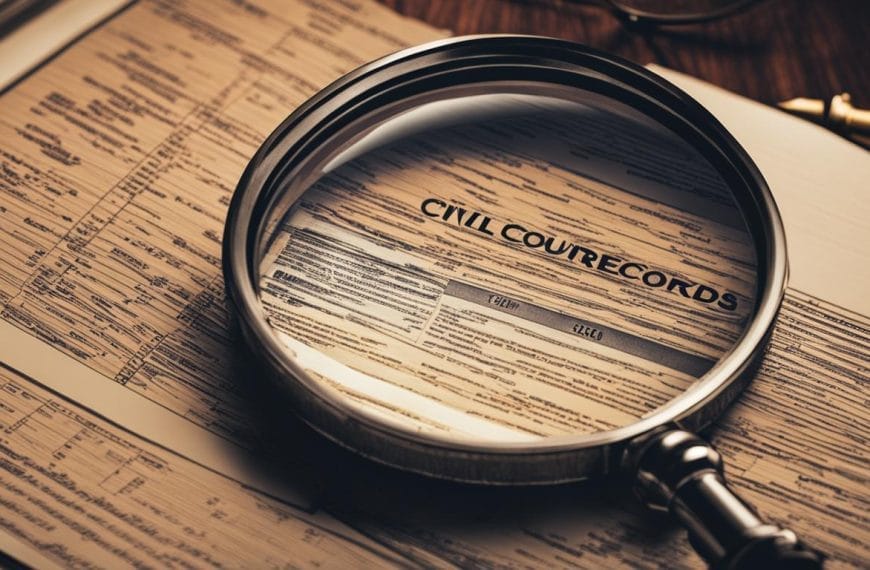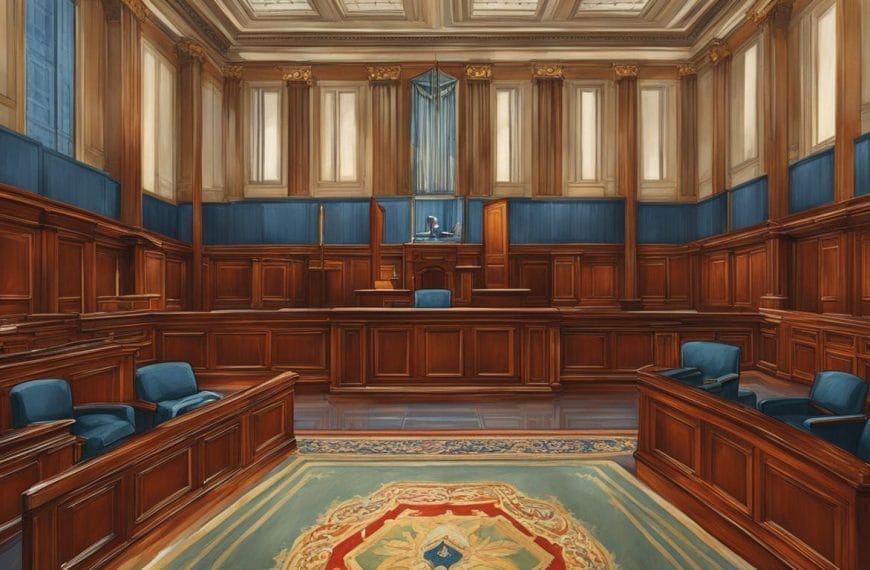Have you ever been wronged and wanted justice? In New Jersey, the civil court system allows you to hold others accountable for harm up to $20,000. Whether you face issues like faulty home repairs, misleading advertising, or breach of contract, understanding your legal options is the first step on the path to resolution.
This article explains everything you need to know to make an informed decision about pursuing a case in New Jersey’s special civil court. From eligibility to filing procedures, we’ll cover what you can claim and how much money you stand to recover. Read on to empower yourself and take control of unwelcome situations through the civil justice system. The power to right wrongs is within your reach.
Filing a Lawsuit in NJ Civil Court: Steps to Follow
To file a lawsuit in NJ civil court, specifically in the special civil part, certain steps need to be followed. Here is a brief overview of the process:
- Complete the special civil part complaint form: This form requires providing details about the case, including the nature of the dispute and the amount being sued for.
- Complete the special civil part summons form: The top part needs to be filled out with the defendant’s information, including their name and address.
- Pay the filing fee: The fee for suing one defendant up to $5,000 is $50. If you are suing one defendant for more than $5,000, the fee is $75. Please note that additional fees may apply for each additional defendant and mail service.
- Submit the documents: Once the forms are completed and the filing fee is attached, you can submit the documents to the county Superior Court. This can be done in person or through the Judiciary Electronic Document Submission (JEDS) system.
Following these steps will ensure your lawsuit is filed correctly in NJ civil court. It’s essential to remember that the specific requirements and procedures may vary, depending on the county or court you’re dealing with. For more detailed information, it’s advisable to consult the official website or seek legal advice.
In the next section, we will discuss the limits on damages in NJ civil court and how compensation is determined in civil cases.
Limits on Damages in NJ Civil Court
When seeking compensation in NJ civil court, plaintiffs may wonder if there are any limits on the damages they can receive. Unlike some states, New Jersey does not have specific laws that cap the maximum amount of money awarded in personal injury cases or other civil lawsuits. This means that a plaintiff’s compensation in a civil court case in NJ is not restricted by any predetermined limits.
Instead, the amount of damages awarded in a civil court case in NJ is determined based on the specific facts and circumstances of the case. The judge or jury carefully evaluates the evidence presented and decides on the appropriate compensation to be awarded.
However, it’s important to note that NJ civil court has a cap on punitive damages. Punitive damages are additional damages awarded to punish the defendant for their misconduct and deter others from engaging in similar behavior. In New Jersey, punitive damages are limited to $350,000 or five times the amount of compensatory damages, whichever is greater.
It’s worth mentioning that compensatory damages, intended to compensate the plaintiff for their losses, can include economic and non-economic damages. Economic damages may cover medical expenses, lost wages, property damage, and other tangible expenses. Non-economic damages, on the other hand, may be awarded for pain and suffering, emotional distress, and loss of enjoyment of life.
While NJ civil court does not impose specific caps on damages, it’s essential for plaintiffs to build a strong case and effectively present their claims to maximize their chances of receiving the compensation they deserve.
Statute of Limitations and Comparative Negligence in NJ Civil Court Cases
In New Jersey civil court cases, the statute of limitations for personal injury cases, including auto accidents, medical malpractice, and premises liability, is 2 years. This means that individuals have a limited timeframe of 2 years from the date they discovered or reasonably could have discovered the harm caused by another person’s negligence to file a lawsuit.
New Jersey follows a modified comparative negligence rule in civil court cases. Under this rule, each party involved in an accident is responsible for their percentage share of fault. If a plaintiff is found to be more than 50% at fault, they are barred from recovering any damages.
| Statute of Limitations | Comparative Negligence |
|---|---|
| 2 years for personal injury cases | Each party responsible for own percentage of fault |
| Applies to auto accidents, medical malpractice, premises liability, and more | Plaintiff barred from recovering damages if more than 50% at fault |
Understanding the statute of limitations and comparative negligence rule is crucial for individuals pursuing personal injury cases in NJ civil court. By being aware of these laws and rules, plaintiffs can navigate the legal system effectively and make informed decisions about their cases.
Conclusion
The NJ civil court caps special civil cases at $20,000. Unlike some states, there are no damage caps – awards are determined by judges and juries based on case facts. The statute of limitations is two years for personal injury. NJ follows comparative negligence rules, so parties are responsible for their percentage of fault.
Those considering a lawsuit should understand the $20,000 limit and legal process. Being informed about civil court rules and limits allows you to make smart decisions about your case, whether involving contracts, property damage, or defective merchandise. The civil court provides a means of resolving disputes fairly and efficiently.
Consulting an experienced attorney can provide guidance through the process. Understanding the civil court system allows you to navigate it confidently and seek deserved outcomes.













